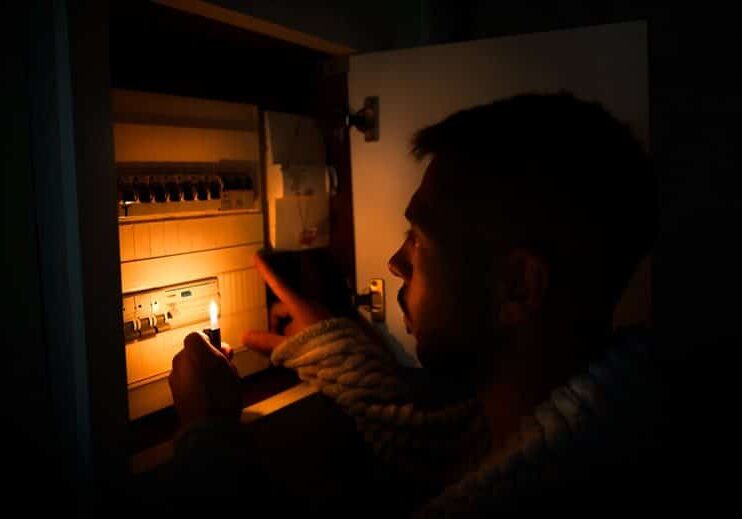The Energy Crisis and Power Cuts: What You Need to Know

The energy crisis is at the forefront of all of our minds, but how will this affect our power supply and power cuts in the UK? In these changing times, it can be hard to stay informed about what it all means for the UK, and for you as an employer.
HR:4UK is here to keep you informed on those changes, and how they will likely impact business owners and employers. Today, we wanted to cover all there is to know about the energy crisis power cuts in the UK, and what your duties are as an employer to ensure the health and safety of your workers.
Need immediate support with your HR problem? Contact HR:4UK today for professional and expert advice.
Are There Going to be Power Cuts This Winter in the UK?
This winter, the National Grid has warned of power cuts, or ‘blackouts’. The chief executive John Pettigrew, at the Financial Times’s Energy Transition Summit, has stated that the power cuts could likely happen during the ‘really, really cold…deepest, darkest evenings in January and February’.
Unfortunately, Britain is vulnerable to these power cuts due to Europe’s continuing energy crisis. As a nation, Britain is not reliant on Russian gas but does import natural gas and electricity from Russia for its gas-fired power plants.
Therefore, both homes and workplaces are likely to be affected by the energy crisis and the power cuts that are predicted this winter in the UK.
What Do I Need to Do as an Employer?
As an employer, you have a duty to ensure the health and safety of your staff. This means maintaining a comfortable working environment and having the necessary contingency plans in place if a power cut does occur.
Power cuts could leave many workplaces unable to carry out their usual business, and those who work from home will not be able to connect virtually. Despite these disruptions, you as the employer will still need to continue paying your staff as usual, subject to the employee’s contract. If an employee cannot work due to a power cut, in the office or at home, this is out of their control and therefore their pay should remain the same.
As an employer, you should consider the effects on employees and their workloads. For example, extend deadlines so that when the power turns back on, your staff have reasonable time to do their tasks.
As an Employer, How Can I Prepare for the Power Cuts in the UK?
It is vitally important that you have a contingency plan in place now especially as there may be little or no notice of the blackouts.
- Implementing alternative power supplies e.g. generators and portable heaters. This will ensure that, in a power cut, a form of emergency lighting is in place
- Working out how you can make your workplace more energy-efficient
- Ensuring that your staff are educated on what to do in the event of a power cut
- Complete a risk assessment, taking the required steps to provide a safe workplace. Employees should not be forced to work where they reasonably believe there is a prospect of danger and such scenarios could allow employees to make unfair dismissal claims without needing the usual two years of employment.
- Be flexible with solutions- encourage employees to keep their phones, tablets and computers fully charged while they are at work to enable them to continue to work offline.
- If possible, businesses could change regular business hours to keep operating around a planned power cut. Alternatively businesses could adjust employees’ working times and shift patterns to accommodate planned blackouts. Do remember that if you don’t have the contractual right to make these temporary changes, you will need to get the employees’ express consent. .
- Businesses should be mindful of any changes to working times and shift patterns as you will need to consider the impact this may have on employees who may have childcare or similar commitments which may mean that they are unable to adjust their working times or shift patterns, especially if it is at short notice.
- You may want to consider asking employees to take paid annual leave during any blackouts – do remember that if you are requesting employees to take annual leave, you will need to give them twice as much notice as the amount of time you require them to take off – this may not be practical if notification of a blackout is at short notice.
- If you are forced to close your workplace because of the planned blackouts, whether this be for a few hours or for a day, if your contracts of employment allow this, you may want to consider implementing short-time working, which means that employees are not paid for unworked time. Do remember that if you don’t have the contractual right to implement short-time working, employees are entitled to their normal pay, unless they consent retrospectively to unpaid short-time working.
Protect Your Business and Staff With HR:4UK
Times are changing and whether it is the energy crisis, power cuts in 2022 or a separate issue entirely, you need to protect your business.
HR:4UK do what we do because we care. Supported by a wealth of experience in HR and employment law, we want to empower your business to grow.
Angela Clay
A qualified employment law solicitor and our managing director, Angela has unparalleled legal expertise and decades of experience and knowledge to draw from. She’s a passionate speaker and writer that loves to keep employers updated with upcoming changes to legislation, and is a regular guest speaker on BBC Leicester Radio.




